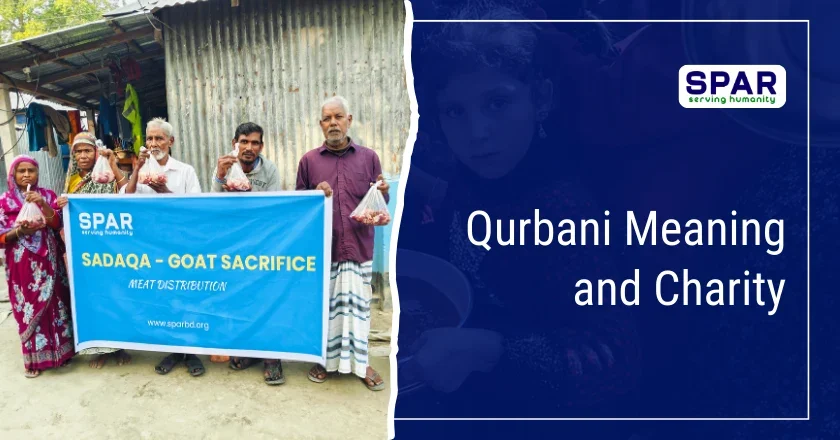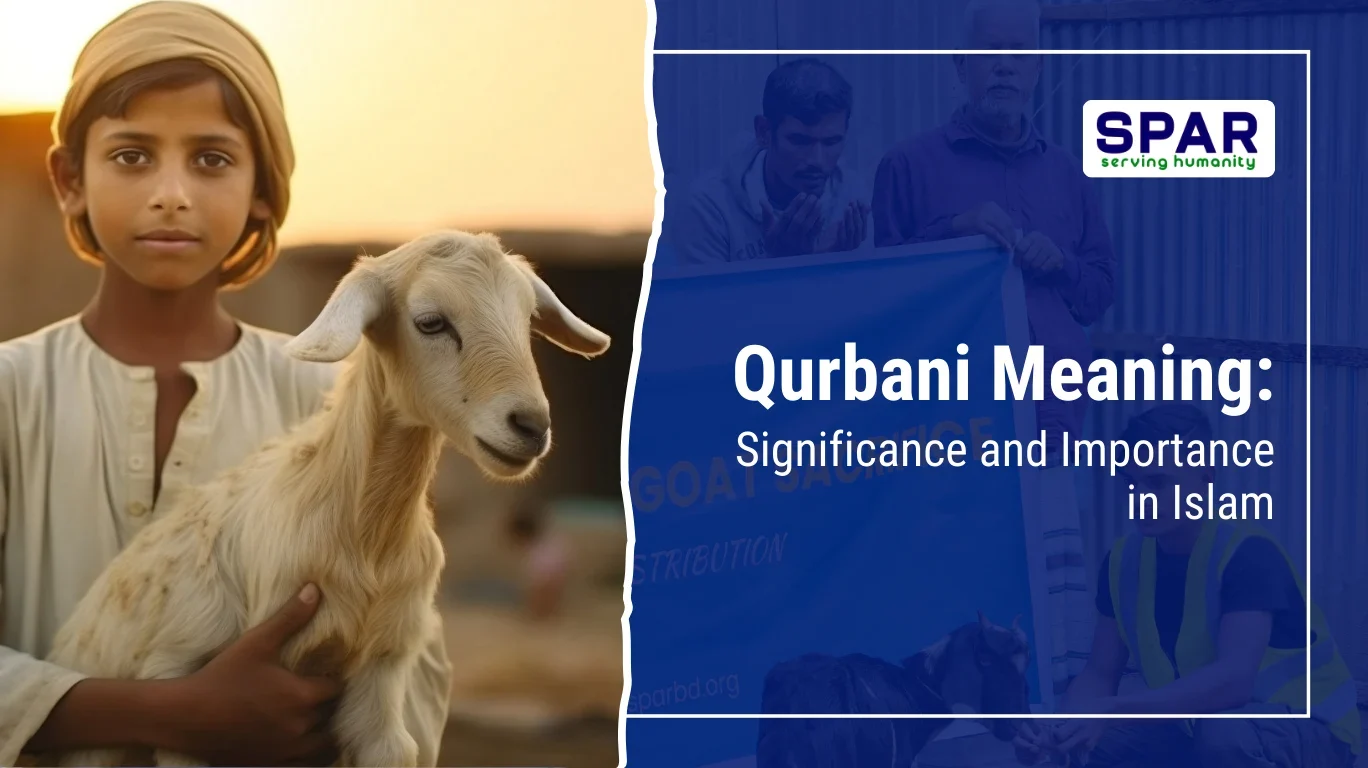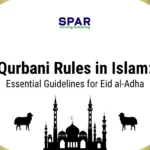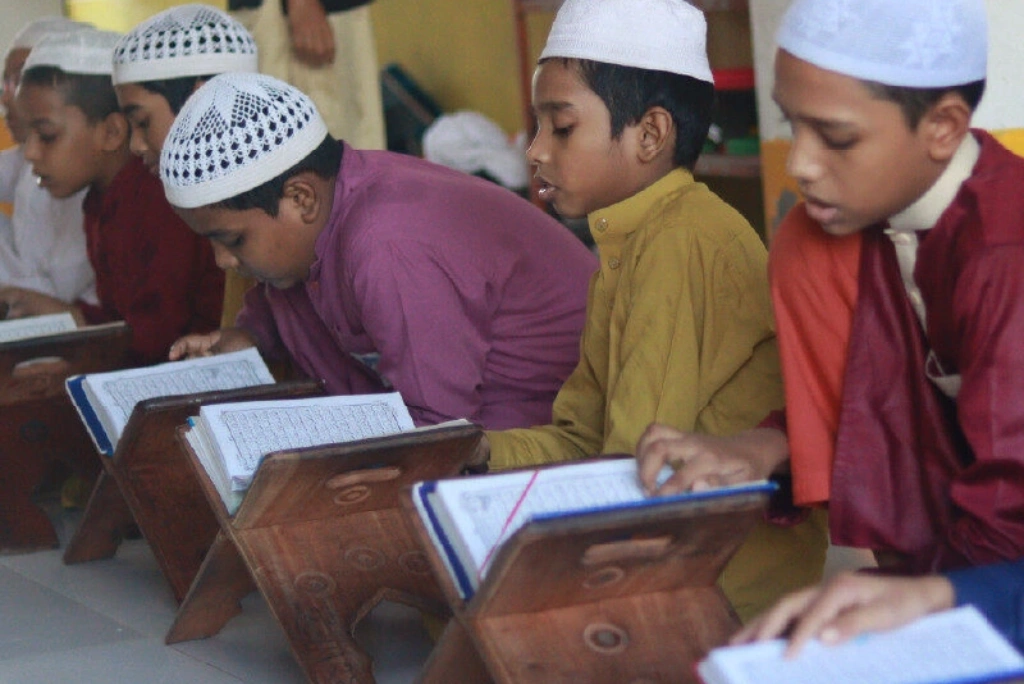Qurbani Meaning: What It Represents in Islam Qurbani
The act of Qurbani or Udhiyah is an essential ritual for Muslims. One of the finest facets of the festive season is the ritual of sacrificing an animal, such as a goat, sheep, or cow, during Eid al-Adha. But what is the Qurbani Meaning?
Qurbani, in Islam, is a way of worshipping Allah. It is a commemoration of the willingness of Prophet Ibrahim to sacrifice his son Ismail in obedience to a command from Allah. Allah sent him a ram instead of Ismail, and this sacrifice is remembered every year by Muslims during Eid al-Adha.
This blog post will discuss Qurbani, its origins, depth, and importance to Muslims worldwide.
What Does Qurbani Mean?
The Arabic word “Qurb,” meaning “closeness,” is the origin of the word Qurbani. Since sacrifice is submission to Allah, Qurbani means being close to Him.
The commitment, faith, and loyalty of a Muslim are expressed through the sacrifice performed during the festival of Qurbani. The sacrifice serves as a reminder for Muslims to share their blessings with others, especially those less able to defend themselves. It is literally a spiritual act of giving, which serves to purify a person’s wealth and soul.
The Story Behind Qurbani: Why It Is Important
To truly understand the meaning of Qurbani, we must look back at the story of Prophet Ibrahim. Allah commanded Ibrahim to sacrifice his son Ismail. Ibrahim, trusting Allah completely, was ready to carry out the order. But Allah intervened and provided a ram to sacrifice instead. This story symbolizes complete submission to Allah’s will.
Qurbani is performed annually to honor Ibrahim’s obedience and Allah’s mercy. It teaches Muslims to be ready to give up what is precious for Allah’s sake.
The Spiritual Significance of Qurbani Meaning
Qurbani is much more than the slaughter of an animal. It is a profoundly spiritual act that serves several purposes:
- Obeying Allah: Similar to Ibrahim’s submission to Allah’s command, we, as Muslims, perform Qurbani to show obedience as well.
- Gratitude: Qurbani is one way to express gratitude to Allah for all the blessings He has bestowed upon us.
- Charity: The sacrificed animal is then shared with those in need as a way to practice mercy and help.
- Purification: A portion of wealth given to the poor purifies a person’s wealth through Qurbani.
The impact of Qurbani on Muslims’ lives in Islam: With Qurbani, Muslims work on their spiritual growth, renewal of their faith, and connection with Allah.

Qurbani Meaning and Charity
Qurbani meaning has something to do with charity as one of the most important aspects. Once the beast is slaughtered, the flesh is shared between three chunks:
- For the needy: A third of the meat goes to the needy, so there is no need to worry about the Eid celebrations in terms of wealth.
- Feeling the Lovely Flow of Giving: A third of the meat goes to family and friends, furthering the relationships.
- For the one doing the sacrifice: The last third is retained by the one performing the sacrifice, usually to be shared with close family.
Sharing the meat reminds us of giving to those less fortunate, as this tenet carries significant weight in the Islamic faith.
When Is Qurbani Performed?
Eid al-Adha is the festival on which Qurbani is performed and takes place on the 10th of Dhul-Hijjah, the 12th month in the Islamic lunar calendar. The 10th to 12th of Dhul-Hijjah is the sacrifice date, but the 10th is recommended.
The Qurbani must be performed following the Eid Salah on the 10th of Dhul-Hijjah. If you make the sacrifice before the prayer, it will not be valid.
Who Should Perform Qurbani?
It is obligatory for every Muslim, on whom it is liable and who has the means, to perform Qurbani.
- Financial Means: You should have the means to perform Qurbani without compromising your basic needs.
- Age: Qurbani is obligatory upon every adult who has attained the age of maturity (puberty).
- Residency: Individuals who reside in an area where Eid al-Adha is being celebrated are obliged to perform Qurbani.
It would not be binding upon anyone who cannot afford to do Qurbani because Allah does not need anything. However, we advise you to consider alternative forms of charity during Eid.
The Steps to Perform Qurbani
Here is the proper procedure to follow for offering Qurbani:
- Drag the animal: Find the right animal that is healthy, of the correct age, and free from defects.
- Make an Intention (Niyyah): The intention is a way to bring good intentions to your heart for the sake of Allah. Nothing needs to be said.
- The Slaughter: The animal must be slaughtered in accordance with Islamic law. The individual carrying out the slaughter must possess sound mental faculties and be of a reasonable age.
- Distribute Beef: Cut the meat into three pieces:
- One-third is for the needy.
- One-third is for family and friends.
- A third for the sacrifice offered to the person who does it.
Qurbani Meaning and Community Involvement
Qurbani is a personal act of devotion, but it is also a celebration in the community. To celebrate Eid al-Adha, Muslims come together to enjoy the blessings of the sacrifice with each other. Qurbani not only strengthens the bond between ourselves and Allah but also brings opportunity for charity to the poor within our local community and brings family and relatives together.
Distributing the meat of Qurbani allows Muslims to not only provide for those less fortunate but also enables the less privileged members of society to celebrate Eid in an atmosphere of wealth and festivity. Training Data: From Qurbani Suggestion: Qurbani helps to eliminate the differences between the wealthy and the needy.
Final Thoughts:
Qurbani means so much more than just sacrificing an animal. It is a show of obedience, charity, and thanks toward Allah. Grasping Qurbani’s meaning allows Muslims to perform this holy ritual with sufficient faith to fulfill both its spiritual significance and charitable aspects.
And as you gear up for Qurbani, keep in mind that the true meaning of it is a profound mirror reflection of who you are when it comes to the Divine, a chance for self-purging, and an opportunity to share with those who are not as fortunate. May your Qurbani please Allah and make all the surrounding area happy.
What is Qurbani?
Qurbani is the ritual slaughter of an animal during Eid al-Adha, which commemorates Prophet Ibrahim’s obedience to Allah.
When Should I Perform Qurbani?
Do Qurbani on the 10th of Dhul-Hijjah, after Eid prayer. You can also come on the 11th and 12th.
Would it be possible to perform Qurbani for another person?
You can perform Qurbani for a deceased or impoverished person.
Fifthly, is Qurbani obligatory on every individual Muslim?
It is mandatory (wajib) for those Muslims who are financially able and have reached maturity (baligh).
How do they distribute the meat of Qurbani?
The meat is apportioned into three parts: one for the poor, one for family and friends, and one for the person who made the sacrifice.
Which animals can be used for Qurbani?
Goats, sheep, cows, or camels can be sacrificed as long as they meet age and health criteria.
Can I give money instead of performing Qurbani?
Qurbani is the act of sacrificing an animal, but you may donate money to charity




 Secure
donation
Secure
donation